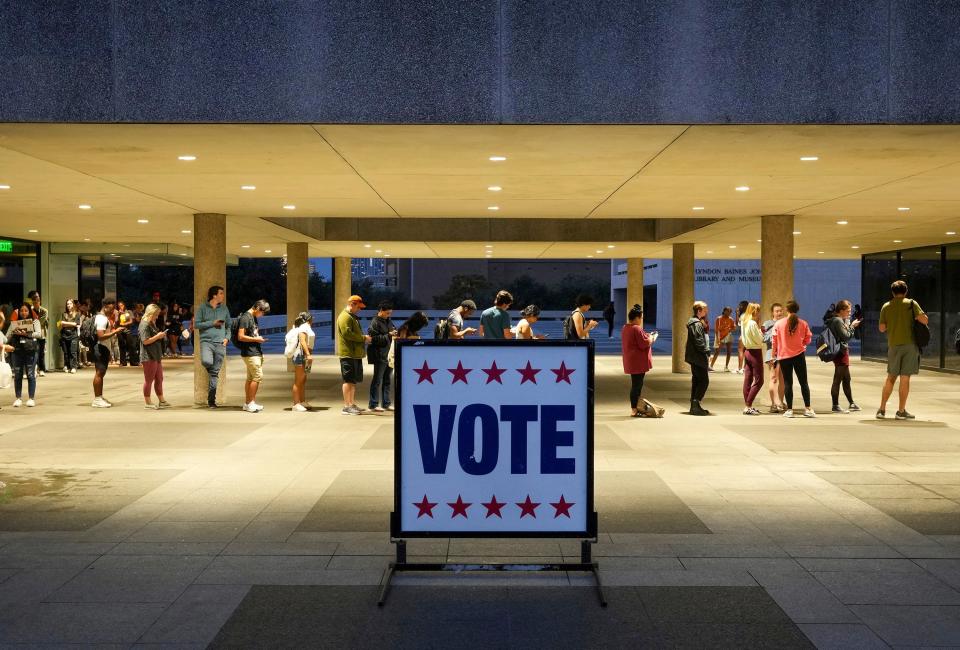I'm an atheist and a conservative. My politics is informed by skepticism, not faith. | Opinion
Most people make assumptions about me when I say I’m conservative: that I was raised by conservatives, that I grew up in some white picket fence suburb and, most common of all, that I must be religious.
What many people are surprised to learn is that I am an atheist. I wasn’t raised religious or conservative, I grew up in the city of Detroit, and I believe that my views on religion have informed my views on politics.
I wasn’t raised a conservative, but I was raised a skeptic. Growing up, one of the most important lessons my parents taught me was to be skeptical of everything, even of their own beliefs. While they were both raised Catholic, that belief system was never forced on me, and I was allowed to evaluate the merits of organized religion myself.
My parents generally vote for Democrats. Until I took an interest in politics in high school, I would have called myself a liberal based on what they thought and based on my rather moderate social stances compared with the common caricature of Republican voters.

Skepticism informs my views of politics and religion
However, when I began to dive into the world I now want to build a career in, I brought the same skepticism I was always taught along with me.
In a 2014 National Review article, Charles Cooke wrote, “I’d venture that much of what informs my atheism informs my conservatism also. I am possessed of a latent skepticism of pretty much everything, a hostility toward the notion that one should believe things because they are a nice idea, a fear of holistic philosophies, a dislike of authority and of dogma.”
I read that article early on in my process of becoming a conservative, and it was reassuring to me that others had reached their conservative outlook through a similar thought process as I did. My skepticism toward authority makes me skeptical of government.
Biden is too old. And so is Trump. As a Gen Z voter, I want younger candidates.
My political philosophy is rooted in a mistrust of those in power and a classical liberal view of individual autonomy. To me, the American system is the best ever created in preserving the autonomy of the individual and for minimizing the tyranny that can be imposed by those in power.
The skepticism that made me averse to religious beliefs has informed my distrust of state authority.
Ranks of nonreligious Americans are growing rapidly
Conservatives who insist that our political movement must remain as an exclusively religious one are mistaken. That insistence will breed alienation, something we cannot afford as a record number of Americans report having no religious faith. Young adults in America are 17 percentage points less likely to identify with organized religions than previous generations.
Americans are leaving church behind. They're giving up a lot more than faith.
Nonreligious conservatism is not only compatible with the framework created in the American founding, it's also an important piece of our realization of those values in modern times. To capture young voters, conservatives should turn to emphasizing classical liberal values, that the state ought not to tell individuals how to live their life, and that conservative governance is the best way to protect freedoms.
While American conservatism is indisputably rooted in Judeo-Christian social teaching, these concepts are transferable into a broad coalition of people who want to minimize the tyranny of the state. America is a secular state for a reason, and the protections our nation offers to those who hold religious beliefs shield those without such beliefs.
I am not hostile to religion, and think that it is a net good in our society. Religion serves as a solution to many of our social issues, and it can help to counteract much of the social decay that has plagued our country in recent years.
Few other social bonds breed the community, morality and introspection that religion does. Not being a believer myself has no impact on my opinion of others who are religious.
However, while religious and political beliefs can inform one another, they are not synonymous. A person can be conservative without being religious, and those who insist otherwise are doing a great disservice to our movement.

Dace Potas is an Opinion fellow for USA TODAY. A graduate from DePaul University with a degree in political science, he's also president of the Lone Conservative, the largest conservative student-run publication in the country. Submit a letter to the editor at freep.com/letters.
This article originally appeared on USA TODAY: Can you be an atheist and a conservative? I'm proof you can

